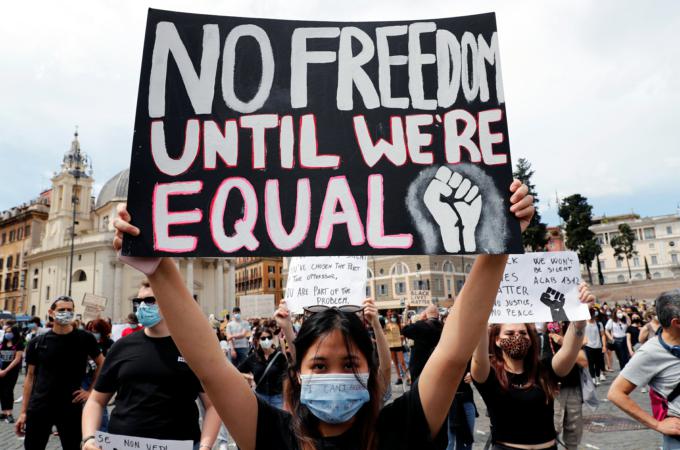This moment of judgment
I'd be willing to bet that not many of us have watched a man die. Those of us who don't go to war or work in intensive care units are not often witnesses to the last breath of another human being. We don't see a lifeless body rolled over onto a stretcher, head dangling limply.
George Floyd died before our eyes. He died while an expressionless policeman, his hand stuck in his pocket, a gesture that seemed nightmarishly casual, pressed the life out of him with his knee.
It was the juxtaposition of these images -- murder and casualness -- that most of us can't get out of our minds. It is that scene that will memorialize this death-drenched year and has ignited a short fuse to a long-standing powder keg of grievances.
As much as we want to avert our eyes, we need to remember the particulars of this situation. We all want to rush to generalizations. All cops. All protesters. All demonstrations. All blacks. All whites. All liberals. All conservatives.
In our horror or in our defensiveness, we paint with broad brushes what needs to be first and foremost a singular moment. A man is dead. We watched him die.
Yet at the same time, the outpouring rage and grief tells us that this was more than just one incident. And if half the nation may be mystified at the reaction, the other half is not.
How difficult it is for those of us who have not experienced the scourge of racism to understand its sting.
How do we understand what it is like to have every eye on us when we enter a suburban restaurant in many states? How do we understand what it feels like to hear casual slurs from strangers? How do we understand what it feels like to be viewed as a threat just going out birdwatching or for a jog?
How do we understand what it feels like to fear the police more than the people they are supposed to protect us from? How do we understand the discomfort of driving to work every day past a house with a Confederate flag on the garage door?
How do we understand the urgency of having "the talk" with our sons about how to be careful in any encounters with police? And how do we understand the trauma of seeing George Floyd's lifeless body and thinking that that could be, not some stranger, but our son, our father?
People say racism is America's original sin. That is not just a figure of speech. St. John Paul II and Pope Francis have both said that racism is a sin. It is a sin that haunts the human soul, and there is evidence of racism and deep ethnic prejudice across all continents and in all nations.
But because America was founded on the loftiest of ideals -- that all men and women are created equal -- the sin stings more.
This is a moment of judgment: The virus, the crashing economy and Floyd's murder have exposed the inequalities and flaws of our nation: in education, in health care, in civil rights. This is also our moment to take a stand together. Yes, looting is terrible. Yes, militarizing a response to peaceful protests is wrong.
But let us not avert our eyes from the challenge at hand. Let us recommit as a nation, as a Church, to the belief that all are equal and all deserve equal opportunity, and that we must make this more than just talk.
Let us address our shortcomings. Let us commit to being strangers no more, lest at the Final Judgment, we have no excuse at all for what we tolerated on our watch.
- Greg Erlandson is director and editor-in-chief of Catholic News Service.



















